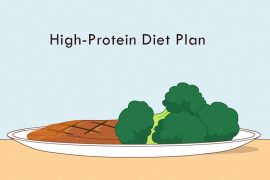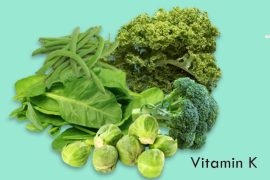The Planetary Health Diet is a concept developed to promote both human health and environmental sustainability. It emphasizes a diet rich in plant-based foods such as fruits, vegetables, whole grains, nuts, and legumes, while reducing the consumption of animal-based products like meat and dairy. This diet aims to address global challenges such as climate change, land degradation, and loss of biodiversity by advocating for sustainable food production practices. It encourages individuals to make choices that not only benefit their own health but also contribute positively to the health of the planet.
Understanding the Planetary Health Diet:
The planetary health diet focuses on promoting both personal health and environmental sustainability.
- Plant-Based Foods: Increase consumption of fruits, vegetables, legumes (beans and peas), nuts, seeds, and whole grains. These foods are rich in fiber, vitamins, and minerals while being environmentally friendly.
- Moderate Animal-Based Foods: Reduce intake of red meat and sugar. Instead, opt for leaner sources of protein such as poultry, fish, and eggs. Dairy consumption should also be moderate.
- Healthy Fats: Choose unsaturated fats found in olive oil, avocados, nuts, and seeds. These fats support heart health and are better for the environment compared to saturated fats.
- Sustainable Protein Sources: Incorporate more plant-based proteins like beans, lentils, tofu, and tempeh. These options have a lower environmental impact compared to animal proteins.
Benefits of the Planetary Health Diet:
- Health Benefits: Lower risk of chronic diseases such as heart disease, diabetes, and certain cancers due to the emphasis on plant-based foods and healthy fats.
- Environmental Benefits: Reduced greenhouse gas emissions, water usage, and land degradation associated with food production. Supporting sustainable agriculture practices helps preserve biodiversity and natural resources.
Practical Steps to Transition:
- Start Gradually: Begin by incorporating more plant-based meals into your diet. Replace one or two meat-based meals per week with vegetarian or vegan options.
- Explore New Foods: Experiment with a variety of plant-based recipes and ingredients. Discover new grains, legumes, and vegetables to diversify your meals.
- Read Labels: Choose foods that are sustainably sourced and minimally processed. Look for organic and local options to reduce your carbon footprint.
- Plan Meals: Plan balanced meals that include a variety of fruits, vegetables, whole grains, and plant-based proteins. Batch-cook meals to save time and minimize food waste.
- Engage with Local Produce: Support local farmers and markets by buying seasonal produce. Consider joining a community-supported agriculture (CSA) program to access fresh, locally grown vegetables.
- Educate Yourself: Stay informed about the environmental impact of food choices. Learn about the benefits of different plant-based foods and how they contribute to your health.
- Seek Support: Connect with communities or groups focused on sustainable eating. Share recipes, tips, and experiences with others who are transitioning to a planetary health diet.
Maintaining Balance:
- Nutrient Balance: Ensure you get adequate protein, vitamins (especially B12 and D), and minerals (like iron and calcium) from plant-based sources or fortified foods.
- Enjoyment: Make your meals enjoyable and satisfying to maintain long-term adherence to the diet.
- Flexibility: Allow for occasional flexibility in your diet, especially for social occasions or special treats, while maintaining the overall principles of sustainability and health.
By following these steps and principles, you can successfully transition to a planetary health diet that supports your well-being and contributes positively to the environment.
Disclaimer:
The information contained in this article is for educational and informational purposes only and is not intended as a health advice. We would ask you to consult a qualified professional or medical expert to gain additional knowledge before you choose to consume any product or perform any exercise.







